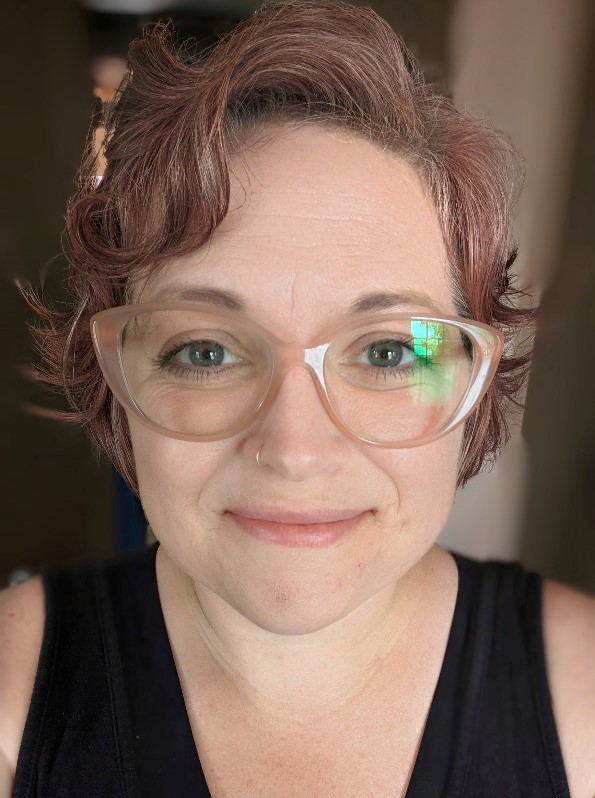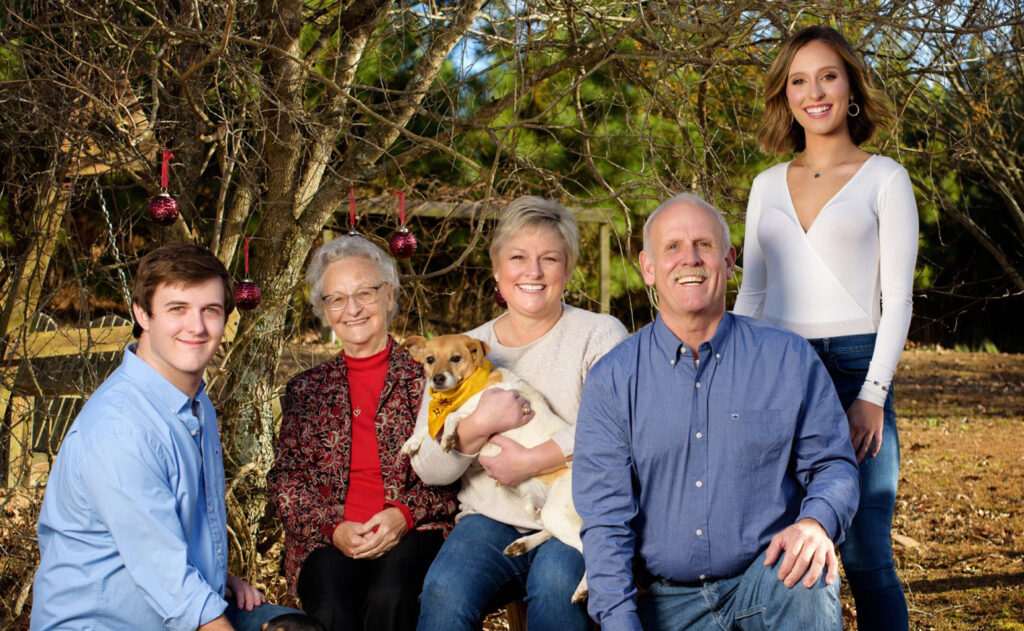A Farewell to Kristen

The UAMS IDHI Brain Injury Program would not be what it is today without its people. One of those people, Kristen Alexander, has been a driving force for Arkansans affected by brain injury. Kristen has moved to a new position, so we wanted to recognize her impact over the years.
Kristen’s work spanned the entire program, including assisting with the grant proposals that fund the BIP, producing the first 5 years of the Brainwaves newsletter, and creating the Arkansas Brain Injury Resource Guide. She also founded a Music Therapy program, managed the state’s brain injury registry, collaborated across the state to strengthen school resources, and planned events and educational programs. Kristen will be most missed by the brain injury community, including the leaders and survivors. As we bid a fond farewell and wish her well with her future endeavors, we would like to share some beautiful sentiments people had to say about her.
Kristen has been an essential cross-agency team member for creating better policies, which have not only raised awareness but has also made a real difference in the lives of families across Arkansas. Kristen’s passion and innovation are truly inspiring, and her efforts to bring resources and stakeholders together will have a lasting impact on how we support children with brain injuries in our state. I can’t wait to see the impact she will have in her new role!
Amy Goddard, PhD
Kristen is one of the smartest women I know. What makes her unique is that she pairs her knowledge with genuine caring, charm, humor, an eye for solutions, and a really great memory!
Chrystal Fullen, PsyD
I have had the privilege of working alongside Kristen since the beginning of [what is now] known as the Brain Injury Program. She provides a safe space for brain injury survivors and their caregivers to feel validated and is always willing to think outside of the box to offer solutions to any potential barriers they may be facing. Her impact is not just measured in her programmatic achievements, but in the many lives she has positively influenced through her passion and
Melissa Weitekamp
tireless efforts.
Kristen shouldn’t step away without feeling satisfied about the positive arc her influence has added to every part of the Program—and the significant difference it has meant for me as I continue to probe and prove (she’d want me to admit the word ‘provoke,’ too) my way forward.”
Jan Williams, TBI Survivor
Want to suggest a topic? Email us at braininjury@uams.edu.
Team Member Spotlight

Sheila Beck, MSPT, CBIS is the Brain Injury Program’s clinical operations coordinator. She joined the Brain Injury Program in November 2023 after serving on the TBI Advisory Board Workgroup from 2019-2021.
During her 31-year career as a physical therapist, Sheila’s experience has included working with children who sustained moderate-to-severe injuries, as well as working with adults who needed neurological rehab. She has worked in acute care, inpatient rehabilitation, home health and outpatient settings, often in rural areas. Sheila also worked in the state’s public school system for nine years. Following her time there, she went to work for Easterseals Arkansas Children’s Rehabilitation Center and obtained her Certified Brain Injury Specialist (CBIS) certification through the Brain Injury Association of America. In the past, she sat on the Arkansas Governor’s Commission on People with Disabilities. She currently holds a position on the Increasing Capabilities Across Network (iCAN) Advisory Board.
Outside of work, Sheila has been married for 31 years and has two grown children. Her hobbies include traveling and listening to audiobooks. True crime podcasts like Dateline are a guilty pleasure. She also enjoys riding her mountain bike in the woods with her dog, Porter. She is active in the St. Joseph’s Catholic Church of Center Ridge, where she plays the organ and helps with parish activities.
Congratulations to Our New Assistant Director

Eddie Williams, BSN, RN, CBIS, has been with the Brain Injury Program for five
and a half years, filling the role of nurse educator for the team. Truth be told, Eddie has done so much more than what was expected of him in that position. For that reason, along with many others, Eddie was recently promoted to the program’s assistant director. Help us wish him a hearty congratulations!
Eddie collaborates with health care providers around the state to provide outreach and support for those individuals living with traumatic brain injuries (TBI) and other significant trauma. He also participates in the medical management including telemedicine usage, education best practices, patient care module development, and professional webinars.
Eddie began his medical profession as an inner-city paramedic with the Memphis Fire Department. He later obtained his RN license, with a focus on emergency and critical care. As a travel nurse, he gained experience in large and small hospitals around the country with a memorable experience as part of a trauma team in Las Vegas. He has received accolades from the emergency
departments at UAMS and Duke University Medical Center for making a positive impact in the lives of his patients and coworkers. Eddie constantly strives to improve the lives of recovering patients through advocacy and education.
Social Security Video Connect: Connect with Us From Anywhere
By Tonya Cater, Social Security Public Affairs Specialist
We continue to find ways to make doing business with us easier. With our Social Security Video Connect option, you can conduct business with us using video on your personal device, from your preferred location.
Social Security Video Connect is available for:
- No-change replacement Social Security cards (U.S. citizens only)
- Date of birth corrections (U.S. citizens only)
- Benefit applications
- Redeterminations
- Overpayments
- Medicare
How to get started:
To get started with this new service, you will need a computer, tablet, or smart phone with a webcam and internet access. Once you have your device, please complete the following steps:
- Contact your local Social Security office or call 1-800-772-1213 between 8:00 a.m. and 7:00 p.m., Monday through Friday to schedule a video appointment. A representative will determine if a video appointment is appropriate for you. If a video appointment isn’t appropriate for your needs, we can conduct the interview over the phone or in the office.
- Provide your email address and phone number to receive an email with a link for the Microsoft Teams meeting.
- Connect with us using that Microsoft Teams meeting link on the date and time of your appointment.
If you run into issues with Teams or need to reschedule your appointment, please contact your local Social Security office or call 1-800-772-1213. We strive to improve our customer service and increase the ways you can connect with us. Please share this information with your friends and family who may need it – and post it on social media.
